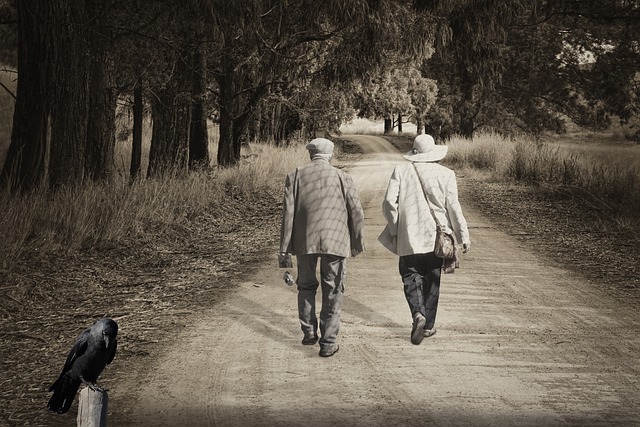Elderly companion services are instrumental in addressing social isolation among seniors, a common issue that can lead to emotional distress, cognitive decline, and health risks. These tailored services provide companionship that goes beyond casual interactions, ensuring a consistent presence that significantly improves the quality of life for older adults by fostering meaningful activities and community connections. They help maintain regular social contacts, offer vital support to mitigate loneliness, prevent mental health deterioration, and enable the elderly to enjoy their later years to the fullest. The effectiveness of such services in combating isolation highlights their importance as a lifeline for the aging population. These services not only enhance seniors' lives by offering assistance with daily tasks, encouraging participation in social activities, and facilitating meaningful conversations but also ensure they remain informed about community events and have opportunities to engage with peers. Overall, elderly companion services promote an active and fulfilling lifestyle, positively impacting the emotional and physical well-being of older adults. Successful programs at Oakridge Village and Sunnydale Retirement Community demonstrate their significant benefits, underscoring their role as a valuable support system for seniors. When selecting a service, it's crucial to consider individual preferences, needs, and the qualifications of the staff to ensure safety and satisfaction, as these services can greatly contribute to a higher quality of life for elderly individuals.
As we age, social interaction often diminishes, leading to isolation that can significantly impact the elderly’s mental and physical health. This article delves into the multifaceted issue of senior isolation and the transformative role of Elderly Companion Services. We explore the challenges faced by the elderly, the benefits of companion services in fostering connections, and innovative strategies for enhancing social engagement through these services. With case studies highlighting successful implementations and guidance on selecting the ideal companion service to combat loneliness, this piece aims to shed light on a solution that can enrich the lives of seniors across communities.
- Understanding the Challenges of Isolation in the Elderly Population
- The Role and Benefits of Elderly Companion Services
- Strategies for Enhancing Social Interaction through Companion Services
- Case Studies: Successful Implementation of Elderly Companion Services
- Choosing the Right Companion Service for Senior Loneliness Prevention
Understanding the Challenges of Isolation in the Elderly Population

As individuals age, the challenges of social isolation can become increasingly pronounced, affecting not just their emotional well-being but also their physical health. The elderly population, often with reduced mobility or the loss of loved ones, may find themselves more isolated, leading to a heightened risk of depression, cognitive decline, and even premature death. Understanding this pervasive issue is crucial for developing targeted interventions that can mitigate its impact. Elderly companion services emerge as a vital resource in this context, offering companionship that goes beyond mere social interaction. These services are tailored to address the unique needs of seniors, providing a consistent presence that can enhance their quality of life and foster a sense of connection with the community at large. By engaging in meaningful activities and maintaining regular social contacts, these services help to alleviate loneliness, reduce the risk of mental health issues, and ensure that the elderly have access to the support they need to thrive in their golden years. The role of such services in combating the silent epidemic of isolation among the elderly is undeniable, offering a lifeline for those who might otherwise be left to face these challenges alone.
The Role and Benefits of Elderly Companion Services

Elderly companion services play a pivotal role in the lives of isolated seniors, offering a blend of companionship and support tailored to their individual needs. These services are designed to alleviate loneliness, a common issue among older adults who may be living alone or far from family and friends. By providing consistent human interaction, these services help maintain the mental well-being of seniors, reducing the risk of depression and cognitive decline associated with prolonged isolation. The companions, often trained in caregiving and social engagement, assist with daily activities, encourage social participation, and can facilitate meaningful conversations that enrich the lives of those they serve. This regular interaction not only improves the senior’s quality of life but also fosters a sense of security and comfort within their own homes. Additionally, these services can act as a vital link to the community, helping seniors stay connected with local events, activities, and social networks, which is crucial for maintaining their independence and social connections. Through elderly companion services, seniors can enjoy a more enriched and socially engaged lifestyle, which is beneficial for both their emotional and physical health.
Strategies for Enhancing Social Interaction through Companion Services

Engaging elderly companion services can significantly bolster the social interactions of isolated seniors, fostering a sense of connection and community. These services pair individuals with companions who provide not just company but also assistance with daily tasks, ensuring that the elderly can maintain their independence while enjoying meaningful conversations and activities. Companions can be trained professionals or volunteers, carefully selected to match the senior’s interests and personality. Through regular visits, shared hobbies, and tailored social events, these services help bridge the gap between seniors and the wider community, enriching their lives with social engagement that is both safe and enjoyable. The role of these companions extends beyond mere friendship; they often serve as a lifeline, helping to prevent feelings of loneliness and depression that can accompany prolonged isolation in the elderly. With a focus on personalized care and empathetic interaction, elderly companion services are a viable solution for enhancing the social lives of seniors, promoting their well-being and overall quality of life.
Case Studies: Successful Implementation of Elderly Companion Services

The implementation of elderly companion services has proven to be a transformative intervention for isolated seniors across various communities. A case study from Oakridge Village showcases the effectiveness of such programs. Here, a dedicated team of companions provided personalized support and engagement to seniors, fostering meaningful connections that combated loneliness. The companions engaged with residents through shared activities tailored to their interests, ensuring each interaction was enriching and enjoyable. This not only improved the residents’ quality of life but also encouraged them to maintain an active social calendar, reducing feelings of isolation and depression.
Another success story is found in Sunnydale Retirement Community, where a specialized elderly companion service was tailored to meet the unique needs of its residents. The program paired seniors with companions who shared similar backgrounds or interests, creating bonds that were both meaningful and sustainable. The companions assisted with daily activities, facilitated group outings, and even provided technological training to help seniors stay connected with their loved ones virtually. This holistic approach led to significant improvements in the overall well-being of the participants, highlighting the potential of elderly companion services to make a tangible difference in the lives of isolated seniors.
Choosing the Right Companion Service for Senior Loneliness Prevention

As seniors face the challenges of isolation, finding the right companion service is crucial for enhancing their social interaction and overall well-being. These services are designed to provide not just companionship but also support that caters to the unique needs of the elderly. When selecting a companion service, it’s essential to consider the individual’s preferences, lifestyle, and specific requirements. Some elderly may benefit from a service offering regular in-home visits, ensuring they have consistent social engagement and assistance with daily tasks. Others might prefer a program that facilitates group activities or outings, allowing for peer interactions and shared experiences that can be both enriching and enjoyable.
Elderly companion services vary widely, from volunteer programs to specialized agencies staffed by trained professionals. It’s important to research the credibility of these services, their staff’s qualifications, and the range of activities they offer. A reliable service will provide a personalized approach, ensuring that each senior receives companionship tailored to their personality and interests. Additionally, these services often go beyond simple companionship by offering health checks, medication reminders, and safety monitoring, which contribute significantly to the seniors’ quality of life. By carefully considering the options available and selecting a companion service that aligns with the elderly individual’s needs and preferences, families can help their loved ones maintain valuable social connections and lead fulfilling lives.
In conclusion, the subject of social interaction for isolated seniors is a multifaceted issue that requires attentive and tailored approaches. The challenges faced by the elderly due to isolation are significant, yet the role of elderly companion services in addressing these issues is both promising and impactful. By implementing strategic initiatives and leveraging the benefits of companion services, we can enhance the social interactions of seniors, leading to improved mental health and overall well-being. The case studies presented highlight the successes that can be achieved when the right companion service is matched with an individual’s needs. It is evident that these services are not just beneficial but often essential for maintaining the health and happiness of our aging population. Therefore, it is crucial to continue promoting and refining elderly companion services to ensure that no senior has to face isolation alone.






